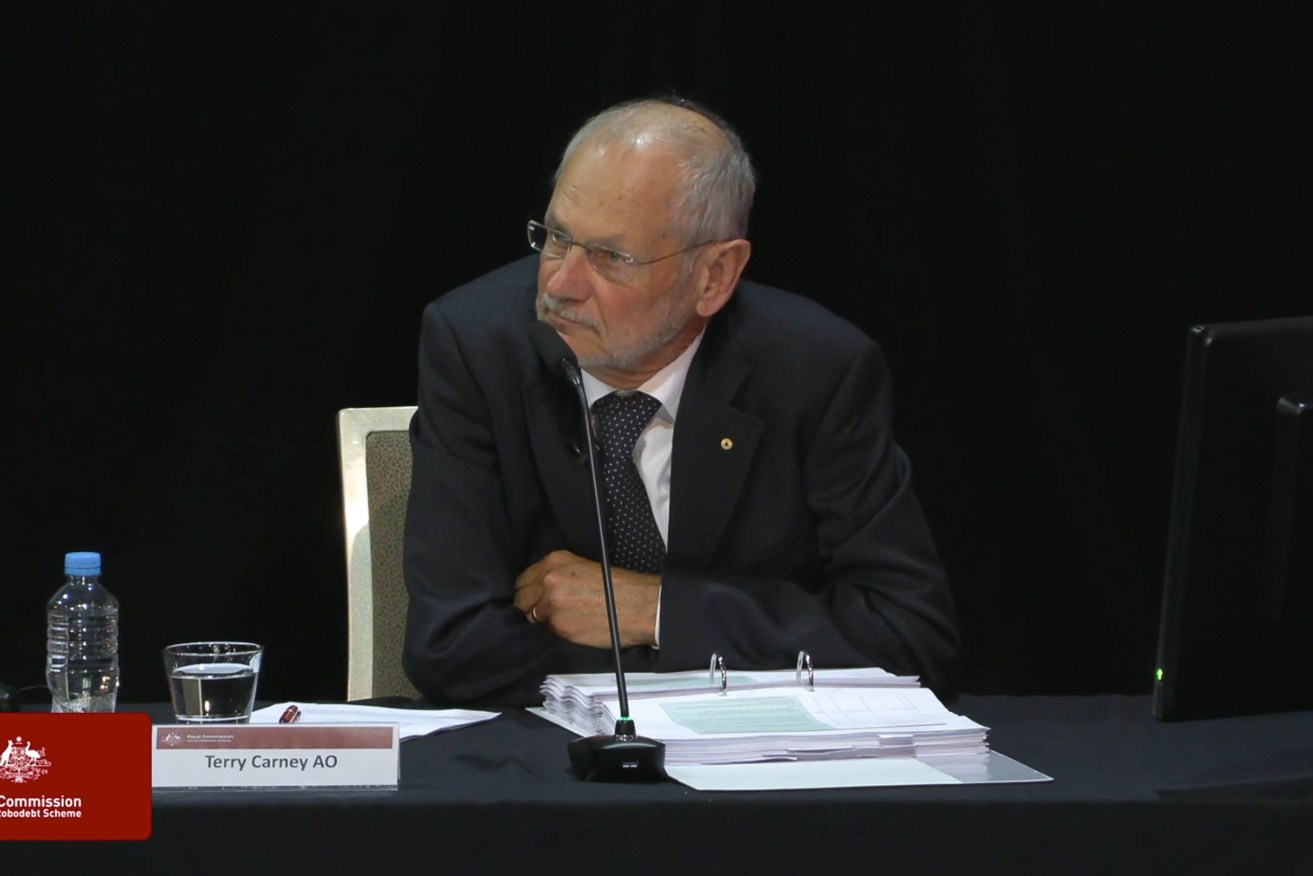‘Legal foundation completely missing’: Robodebt alarm bells rang very early
A key player in scrapping the robodebt scheme was alarmed about the unlawful welfare program as soon as it was announced.

Emeritus Professor Terry Carney speaking at the Royal Commission into the Robodebt Scheme. Supplied image
Terry Carney worked at the Administrative Appeals Tribunal, which hears appeals to decisions made under Commonwealth law, for almost 40 years.
Long before the former coalition government dismantled the program, he knew something was wrong.
Robodebt used a controversial data-matching technique to calculate debts on welfare recipients, comparing the income they declared to Centrelink with tax office records.
“From the very early stages I read the budget papers and saw what was proposed, all sorts of alarm bells went off in my mind,” Carney told the royal commission in Brisbane on Tuesday.
“The legal foundation was completely missing.”
Carney on five different occasions found that debts calculated under the scheme lacked enough evidence and could not be legally enforced.
He ruled it was not the responsibility of welfare recipients to provide pay-slip data or risk being hit with a debt, adding that using an income average to calculate debts was illegal.
He found the practice of averaging income lacked “sufficient strength of evidence” and “simple mathematics”.
Carney said it was common throughout his lengthy tenure that the Department of Human Services “rapidly appealed” decisions where a major government policy was in issue.
But he said the department never appealed any ruling that found a robodebt was not legally enforceable.
The same year he repeatedly ruled against robodebt, Carney reapplied for his position but was not reappointed.
“It did come as a surprise,” he said.
“It did me and the public a favour because if what transpired was the department wasn’t acting on decisions sometime in the following year, I would have felt obliged to resign my position … then it would be possible and proper for me to have gone public about the legality.”
The commission also heard from Barbara Martin – a pseudonym given to a Services Australia employee – although that evidence was presented behind closed doors.
She was expected to give evidence about how her organisation handled robodebt complaints.
– AAP




